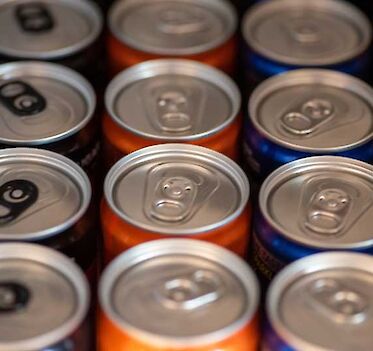Breaking Down the Ingredients, Risks, and Benefits of Popular Energy Drinks and Loaded Teas
Are Energy Drinks & Energy Teas Really That Bad for You?
Energy drinks and energy teas have exploded in popularity. Whether it’s a can of Monster before a workout or a brightly colored loaded tea from your local nutrition shop, these beverages are marketed as quick energy boosters. But what are they really doing to your body? Let’s break it down.
What’s in Your Cup?
Some of the most popular energy drinks and teas include:
- Red Bull
- Monster
- Bang
- Celsius
- 5-Hour Energy
- Ghost Energy
- Alani Nu
- Prime Energy
- Herbalife Teas
- Loaded teas from nutrition shops
- Starbucks Refreshers
These drinks promise a lot — increased focus, quicker reaction time, and a temporary boost in energy and mood. Many are fortified with B vitamins, electrolytes, or amino acids, all of which are marketed to enhance endurance and performance. But as Dr. Spencer Reynolds puts it, “Even though energy drinks are marketed as harmless or ‘healthy,’ they often contain a mix of stimulants, sugar, and additives that can have long-term health impacts when consumed frequently.”
The Downsides You Should Know
While the occasional energy drink may be fine for most healthy adults, regular use can cause problems. Here are some of the most common side effects:
- Jitters, nervousness, or anxiety
- Rapid heart rate or palpitations
- Headaches or migraines
- Nausea or stomach upset
- Insomnia or disrupted sleep
- Dehydration — especially during workouts or hot weather
- Dependency and withdrawal symptoms
More seriously, high consumption has been linked to:
- Heart arrhythmias
- Seizures
- Liver damage
- Anxiety and mood disorders
- Increased risk of stroke in vulnerable individuals
Dr. Reynolds cautions, “If you’re constantly feeling tired, an energy drink may mask the problem rather than solve it. Consider talking with your healthcare provider about more sustainable solutions.”
What About Heavy Metals?
Surprisingly, yes — some energy drinks and teas contain trace amounts of heavy metals like aluminum, lead, or cadmium. These substances can sneak in through artificial food dyes, aluminum packaging, or contaminated herbal extracts. While most products stay below harmful levels, long-term, regular consumption — especially in children or those with underlying conditions — could lead to dangerous buildup.
Are Energy Teas Any Better?
Not always. Many energy teas, even those branded as “natural” or “clean,” still contain high levels of caffeine and additional stimulants like synephrine. These ingredients can be just as risky, especially when consumed:
- In excess
- Alongside alcohol
- By individuals with heart issues, anxiety, or high blood pressure
- During pregnancy or breastfeeding
The Bottom Line
Energy drinks and teas aren’t inherently bad — but moderation is everything. A loaded tea or energy drink here and there probably won’t hurt, but if you rely on them daily, it’s time to take a closer look at what’s driving your fatigue. It could be poor sleep, a nutritional gap, or even a B12 deficiency.
Energy boosts shouldn’t come at the cost of your long-term health. Pay attention to your body, and when in doubt, stop by your local HealthCARE Express. We’re always here to help you stay energized, safely.
